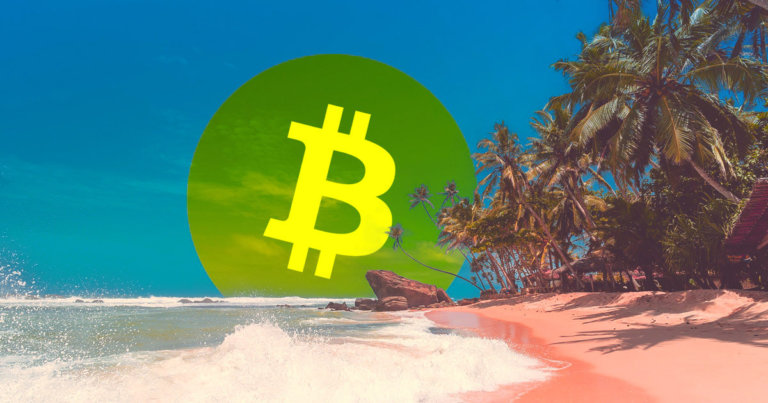 You can become an island paradise “crypto citizen” for just $248. But what’s the catch?
You can become an island paradise “crypto citizen” for just $248. But what’s the catch? You can become an island paradise “crypto citizen” for just $248. But what’s the catch?
Palau opens it digital residency program this month. However, closer inspection reveals it isn't as good as it sounds.

Cover art/illustration via CryptoSlate. Image includes combined content which may include AI-generated content.
As the total crypto market cap creeps back above $2 trillion, for many, thoughts turn once again to quitting the rat race and moving abroad.
Stand-out destinations for the crypto inclined include Puerto Rico, El Salvador, or even Cyprus. But what about Palau?
Through its digital residency program, Palau is opening its door to “crypto citizens” in a bid to attract capital. For just $248, anyone can apply for the Root Name System (RNS) digital residency scheme.
But before you start checking flights, you should know that the RNS program may not be what you had in mind.
Why is Palau turning to crypto?
The Pacific Ocean archipelago of Palau consists of over 500 islands set against delicate sands and unblemished coral reefs.
Having gained independence from the U.S in 1994, Palau now has a “free association” agreement. Meaning the U.S has a 50-year responsibility to defend the sovereign state from the date of independence.
English is one of the three official languages, alongside Palauan and Sonsorolese-Tobian. And with U.S dollars as the national currency, payments are universal, and foreigners visiting there benefit from a substantial degree of purchasing power parity.
Tourism accounted for almost 50% of Palau’s gross domestic product before the health crisis struck. But travel restrictions have decimated this industry, leaving a vast black hole in the country’s coffers.
Scrambling to diversify, through its RNS program, Palau is looking to develop itself into a crypto hub.
For less than $250, you can apply for a “limited edition NFT ID card.” This affords the holder digital residency status, giving benefits such as the use of a Palauan business address and opening banking and brokerage accounts from the region.
These benefits could be useful for crypto investors whose governments oppose digital currency trading.
Digital residency isn’t the same as residency
Sadly, digital residency status does not necessarily mean holders can live in Palau, open a business there, or become a citizen. In other words, the “digital” in digital residency is exactly that.
The RNS website talks about geographic borders hindering life in a “hyper-connected world.” The program seeks to solve this issue by offering the world’s first blockchain digital residency.
“RNS’s mission is to usher in a global and borderless world and support the new generation of global digital existence.“
On the plus side, “RNS partners” have 0% income tax, access to U.S markets, a “stable low-risk environment” (which is debatable considering the country’s worsening debt to GDP ratio), and a physical U.S zip code address.
It remains to be seen how successful RNS will be. But one thing’s for sure, including residency, or perhaps citizenship would make the proposition much more appealing.





 Elon Musk
Elon Musk 


































































